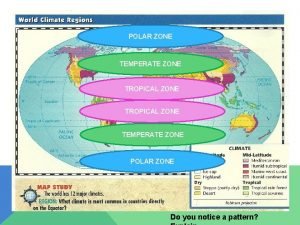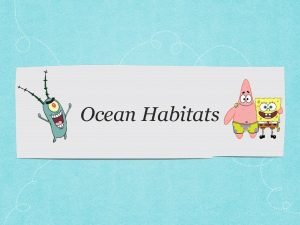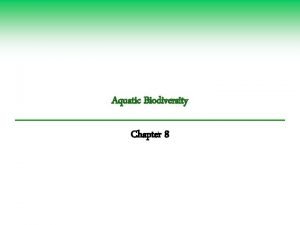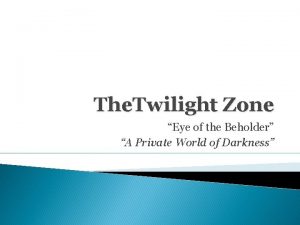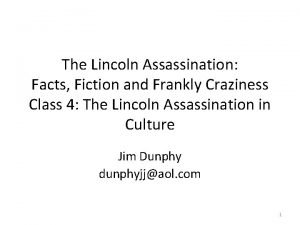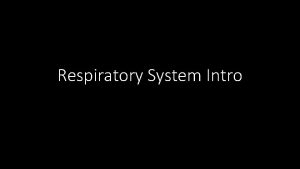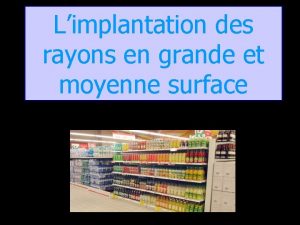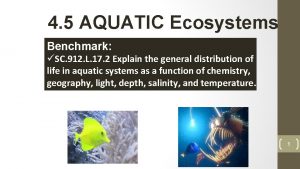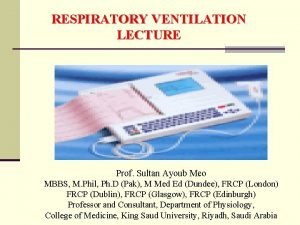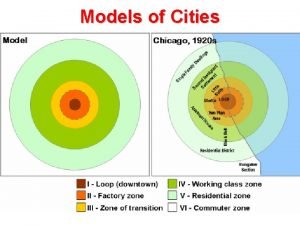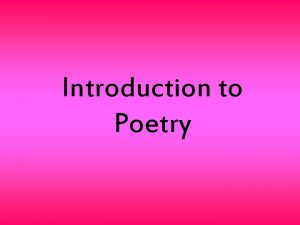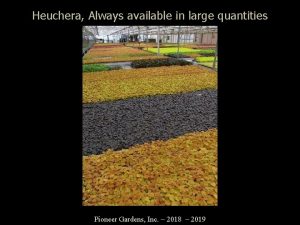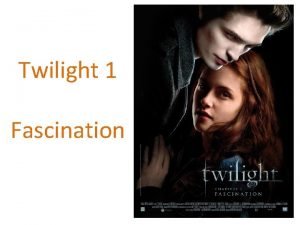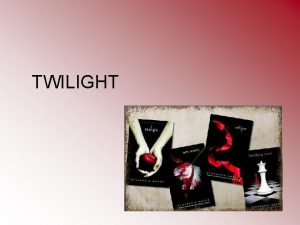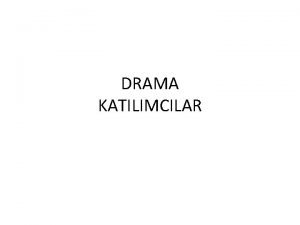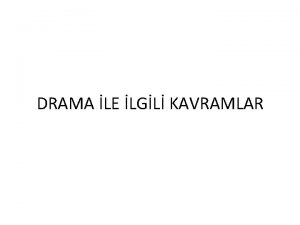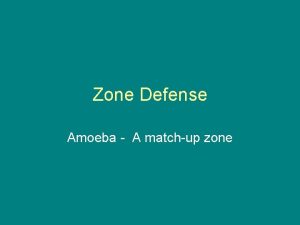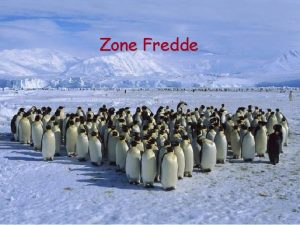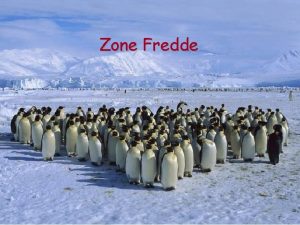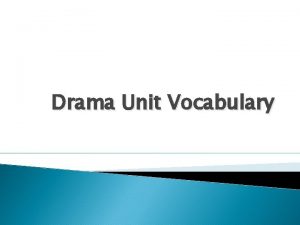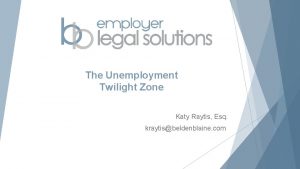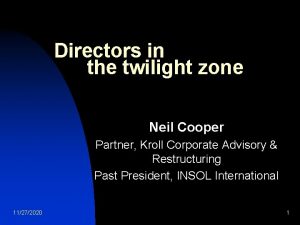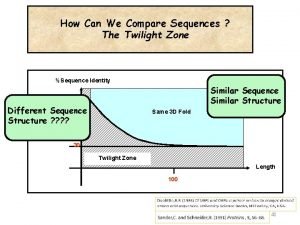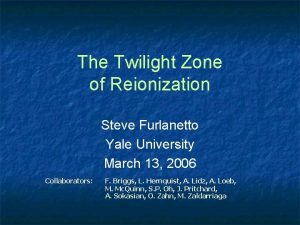Drama Unit What is the twilight zone Drama

















- Slides: 17

Drama Unit What is the twilight zone?

Drama Terms and Elements. . . Drama- literature written to be performed Props-short for "properties, "--the pictures, furnishings, historical nuances, and so on, that provide the stage's background. Playwright - a person who writes plays. William Shakespeare is regarded as the greatest playwright in English Literature. Set - the place where a film or television show is being made. Script- A script is a written version of a play or movie. Special Effects - unusual visual and sound effects beyond the range of normal photography or recording, as simulated fires or earthquakes, explosions, thunder, etc. Speaker - The character who tells the story, poem, etc.

Drama Terms and Elements contd. . Theme - central message in a literary work. Screenplay - is written for a stage. It delivers ideas through dialogue and stage directions. The audience hears dialogue (actors speaking to each other). Teleplay - is a play written for television. Written to be filmed by a camera and not acted on stage. Monologue - any speech of some duration addressed by a character to a second person.

Drama Terms and Elements contd. . Dialogue- The conversation between characters. The lines spoken by the characters in a play. In a play, the dialogue follows the names of the characters, and no quotation marks are used. Protagonist - the main character in a literary work. Antagonist - a character or a force in conflict with a main character, or protagonist.

Drama Terms and Elements contd. . Stage Directions-words in a dramatic script--generally italicized--that define an actor's (apart from his/her dialogue) actions, movements, attitudes and so forth throughout the play Act-a major division of a play. Acts may be further divided into scenes. May be used to indicate a change in time or place. Scene - a. a subdivision of an act of a play, in which the time is continuous and the setting is fixed. b. a single event, esp a significant one, in a play. Asides-brief comments by an actor who addresses the audience but is assumed not to be heard by the other characters on the stage.

So why do we need to know this… because

Now let’s take a look at some words. . .

WORDS TO KNOW—Vocabulary flustered: nervous or confused persistent: refusing to give up; continuing stubbornly legitimate: in accordance with accepted practices; reasonable defiant: willing to stand up to opposition; bold incriminate: to cause to appear guilty optimistic: hopeful about the future; confident menace: a person whose action or attitudes are considered harmful. ● idiosyncrasy: a personal way of acting; odd mannerism ● scapegoat: a person or group made to bear the blame for others. ● conquest: anything acquired by conquering, such as a nation or territory. ● ● ● ●

Mob Mentality. . . People in a crowd often act differently than they do when they are alone. People in a group may laugh louder, feel braver, or get angrier. Sometimes a crowd can even become dangerous. When it does—as in the teleplay you’re about to read—it becomes a mob. What recent event took place that would be an example of “mob mentality”? Can you think of others? Discuss with your group!

Check out these videos. . .

Turn to page 835 in your textbook!

Twilight Zone… 156 episodes Serling used the science fiction and fantasy genres to deal with social issues such as prejudice and intolerance. The Monsters Are Due on Maple Street aired March 4 th, 1960. The series was a collection of various tales that range from the tragic to the comedic. They may be scary or just thought -provoking. Most episodes have unexpected endings and a moral lesson. But, no matter what, it's "a journey into a wondrous land, whose boundaries are that of the imagination. "

Just think. . . 1960’s No cordless phones No cell phones “Regular” phones do not use electricity. Phone calls often still went through an operator. No Ipods or cd players. “Portable” radios were battery operated. No remote starters for cars.

Fear can be helpful or harmful depending on how you perceive the situation. In your group, make a list of three examples where fear can be perceived as being helpful and three where fear is perceived as harmful. Write your responses on a sticky notes and place them on the class chart. Be prepared to share!

Page 836 Summarize: Do you think the light is an important or unimportant detail? You and your partner summarize what just happened. Page 837 Character’s Motive: Why do the character’s come out of their homes? Talk to your partner about how this action helps develop the plot. Page 839 Character’s Motive: Why does Tommy warn Charlie and Steve not to leave? Is Tommy’s warning an internal or external response? Talk to your partner about how this action helps develop the plot. Page 840 Character’s Motive: Why does Tommy’s mother want him to stop talking? Ask your partner what does this external response reveal? Page 842 Summarize: You and your partner discuss the car starting. Why might this be an important detail? Page 849 Stage Directions: You and your partner discuss how the stage directions on this page adds to the suspense of the drama.

When we let prejudice and suspicion control us, we become our own worst enemy. 1. Speculate as to how an individual might have reacted differently in the same situation. Do you think being part of a crowd makes a situation worse? At what point do you think a group become a crowd? 2. What does the narrator mean when he says the search for a scapegoat produces fallout that can harm future generations? 3. Can you think of some event in history that might not have happened had it not been for a "mob mentality"? How might things have been different? 4. Have you ever been wrongly accused of anything? How did that make you feel? If you have not, how do you think it would make you feel? 5. Have you ever gone against your own beliefs because it's what all your friends were doing? Why is it so hard not to become part of "a crowd"?

The Monsters Are Due On Maple Street Original Version: Shared on Google Drive Modern Version: Youtube Part 1 Youtube Part 2
 Tropical polar temperate zones
Tropical polar temperate zones Intertidal ocean zone
Intertidal ocean zone Source zone transition zone and floodplain zone
Source zone transition zone and floodplain zone Twilight zone eye of the beholder
Twilight zone eye of the beholder Fictional
Fictional Conducting zone of the respiratory system function
Conducting zone of the respiratory system function Conducting zone of the respiratory system function
Conducting zone of the respiratory system function Zone chaude zone froide magasin
Zone chaude zone froide magasin Zone of aeration and zone of saturation
Zone of aeration and zone of saturation Underground water table
Underground water table Climate and latitude
Climate and latitude Photic zone and aphotic zone venn diagram
Photic zone and aphotic zone venn diagram Conducting zone vs respiratory zone
Conducting zone vs respiratory zone Zone 1 and zone 2
Zone 1 and zone 2 Concentric city model
Concentric city model Unit 10, unit 10 review tests, unit 10 general test
Unit 10, unit 10 review tests, unit 10 general test Stanza
Stanza Heuchera flores sea
Heuchera flores sea
